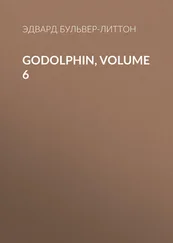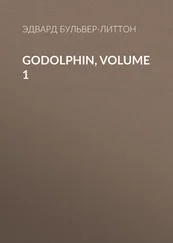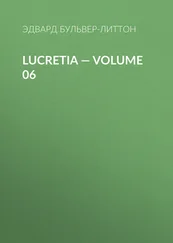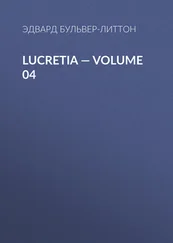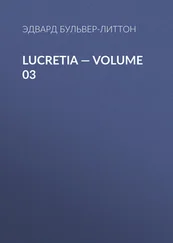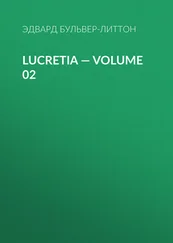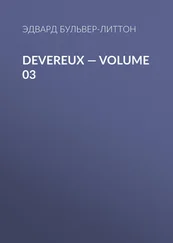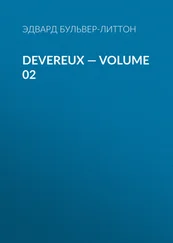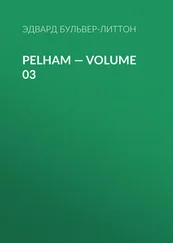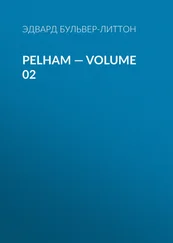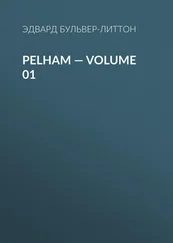Эдвард Бульвер-Литтон - My Novel — Volume 07
Здесь есть возможность читать онлайн «Эдвард Бульвер-Литтон - My Novel — Volume 07» — ознакомительный отрывок электронной книги совершенно бесплатно, а после прочтения отрывка купить полную версию. В некоторых случаях можно слушать аудио, скачать через торрент в формате fb2 и присутствует краткое содержание. Жанр: foreign_prose, literature_19, Европейская старинная литература, foreign_antique, на английском языке. Описание произведения, (предисловие) а так же отзывы посетителей доступны на портале библиотеки ЛибКат.
- Название:My Novel — Volume 07
- Автор:
- Жанр:
- Год:неизвестен
- ISBN:нет данных
- Рейтинг книги:3 / 5. Голосов: 1
-
Избранное:Добавить в избранное
- Отзывы:
-
Ваша оценка:
- 60
- 1
- 2
- 3
- 4
- 5
My Novel — Volume 07: краткое содержание, описание и аннотация
Предлагаем к чтению аннотацию, описание, краткое содержание или предисловие (зависит от того, что написал сам автор книги «My Novel — Volume 07»). Если вы не нашли необходимую информацию о книге — напишите в комментариях, мы постараемся отыскать её.
My Novel — Volume 07 — читать онлайн ознакомительный отрывок
Ниже представлен текст книги, разбитый по страницам. Система сохранения места последней прочитанной страницы, позволяет с удобством читать онлайн бесплатно книгу «My Novel — Volume 07», без необходимости каждый раз заново искать на чём Вы остановились. Поставьте закладку, и сможете в любой момент перейти на страницу, на которой закончили чтение.
Интервал:
Закладка:
[Published more than a year before the date of the French empire under Louis Napoleon.]
"Impress, O Pisistratus! impress the value of patience as regards man and men. You touch there on the kernel of the social system,—the secret that fortifies the individual and disciplines the million. I care not, for my part, if you are tedious so long as you are earnest. Be minute and detailed. Let the real Human Life, in its war with Circumstance, stand out. Never mind if one can read you but slowly,—better chance of being less quickly forgotten. Patience, patience! By the soul of Epictetus, your readers shall set you an example."
CHAPTER II
Leonard had written twice to Mrs. Fairfield, twice to Riccabocca, and once to Mr. Dale; and the poor proud boy could not bear to betray his humiliation. He wrote as with cheerful spirits,—as if perfectly satisfied with his prospects. He said that he was well employed, in the midst of books, and that he had found kind friends. Then he turned from himself to write about those whom he addressed, and the affairs and interests of the quiet world wherein they lived. He did not give his own address, nor that of Mr. Prickett. He dated his letters from a small coffee-house near the bookseller's, to which he occasionally went for his simple meals. He had a motive in this. He did not desire to be found out. Mr. Dale replied for himself and for Mrs. Fairfield, to the epistles addressed to these two. Riccabocca wrote also.
Nothing could be more kind than the replies of both. They came to Leonard in a very dark period in his life, and they strengthened him in the noiseless battle with despair.
If there be a good in the world that we do without knowing it, without conjecturing the effect it may have upon a human soul; it is when we show kindness to the young in the first barren footpath up the mountain of life.
Leonard's face resumed its serenity in his intercourse with his employer; but he did not recover his boyish ingenuous frankness. The under- currents flowed again pure from the turbid soil and the splintered fragments uptorn from the deep; but they were still too strong and too rapid to allow transparency to the surface. And now he stood in the sublime world of books, still and earnest as a seer who invokes the dead; and thus, face to face with knowledge, hourly he discovered how little he knew. Mr. Prickett lent him such works as he selected and asked to take home with him. He spent whole nights in reading, and no longer desultorily. He read no more poetry, no more Lives of Poets. He read what poets must read if they desire to be great—/Sapere principium et fons/,—strict reasonings on the human mind; the relations between motive and conduct, thought and action; the grave and solemn truths of the past world; antiquities, history, philosophy. He was taken out of himself; he was carried along the ocean of the universe. In that ocean, O seeker, study the law of the tides; and seeing Chance nowhere, Thought presiding over all, Fate, that dread phantom, shall vanish from creation, and Providence alone be visible in heaven and on earth!
CHAPTER III
There was to be a considerable book-sale at a country house one day's journey from London. Mr. Prickett meant to have attended it on his own behalf, and that of several gentlemen who had given him commissions for purchase; but on the morning fixed for his departure, he was seized with a severe return of his old foe the rheumatism. He requested Leonard to attend instead of himself. Leonard went, and was absent for the three days during which the sale lasted. He returned late in the evening, and went at once to Mr. Prickett's house. The shop was closed; he knocked at the private entrance; a strange person opened the door to him, and in reply to his question if Mr. Prickett was at home, said, with a long and funereal face, "Young man, Mr. Prickett senior is gone to his long home, but Mr. Richard Prickett will see you."
At this moment a very grave-looking man, with lank hair, looked forth from the side-door communicating between the shop and the passage, and then stepped forward. "Come in, sir; you are my late uncle's assistant, Mr. Fairfield, I suppose?"
"Your late uncle! Heavens, sir, do I understand aright, can Mr. Prickett be dead since I left London?"
"Died, sir, suddenly, last night. It was an affection of the heart. The doctor thinks the rheumatism attacked that organ. He had small time to provide for his departure, and his account-books seem in sad disorder: I am his nephew and executor."
Leonard had now—followed the nephew into the shop. There still burned the gas-lamp. The place seemed more dingy and cavernous than before. Death always makes its presence felt in the house it visits.
Leonard was greatly affected,—and yet more, perhaps, by the utter want of feeling which the nephew exhibited. In fact the deceased had not been on friendly terms with this person, his nearest relative and heir-at-law, who was also a bookseller.
"You were engaged but by the week, I find, young man, on reference to my late uncle's papers. He gave you L1 a week,—a monstrous sum! I shall not require your services any further. I shall move these books to my own house. You will be good enough to send me a list of those you bought at the sale, and your account of travelling expenses, etc. What may be due to you shall be sent to your address. Good-evening."
Leonard went home, shocked and saddened at the sudden death of his kind employer. He did not think much of himself that night; but when he rose the next day, he suddenly felt that the world of London lay before him, without a friend, without a calling, without an occupation for bread.
This time it was no fancied sorrow, no poetic dream disappointed. Before him, gaunt and palpable, stood Famine. Escape!—yes. Back to the village: his mother's cottage; the exile's garden; the radishes and the fount. Why could he not escape? Ask why civilization cannot escape its ills, and fly back to the wild and the wigwam.
Leonard could not have returned to the cottage, even if the Famine that faced had already seized him with her skeleton hand. London releases not so readily her fated step-sons.
CHAPTER IV
One day three persons were standing before an old bookstall in a passage leading from Oxford Street into Tottenham Court Road. Two were gentlemen; the third, of the class and appearance of those who more habitually halt at old bookstalls.
"Look," said one of the gentlemen to the other, "I have discovered here what I have searched for in vain the last ten years,—the Horace of 1580, the Horace of the Forty Commentators, a perfect treasury of learning, and marked only fourteen shillings!"
"Hush, Norreys," said the other, "and observe what is yet more worth your study;" and he pointed to the third bystander, whose face, sharp and attenuated, was bent with an absorbed, and, as it were, with a hungering attention over an old worm-eaten volume.
"What is the book, my lord?" whispered Mr. Norreys. His companion smiled, and replied by another question, "What is the man who reads the book?"
Mr. Norreys moved a few paces, and looked over the student's shoulder. "Preston's translation of Boethius's 'The Consolations of Philosophy,'" he said, coming back to his friend.
"He looks as if he wanted all the consolations Philosophy can give him, poor boy."
At this moment a fourth passenger paused at the bookstall, and, recognizing the pale student, placed his hand on his shoulder, and said, "Aha, young sir, we meet again. So poor Prickett is dead. But you are still haunted by associations. Books, books,—magnets to which all iron minds move insensibly. What is this? Boethius! Ah, a book written in prison, but a little time before the advent of the only philosopher who solves to the simplest understanding every mystery of life—"
Читать дальшеИнтервал:
Закладка:
Похожие книги на «My Novel — Volume 07»
Представляем Вашему вниманию похожие книги на «My Novel — Volume 07» списком для выбора. Мы отобрали схожую по названию и смыслу литературу в надежде предоставить читателям больше вариантов отыскать новые, интересные, ещё непрочитанные произведения.
Обсуждение, отзывы о книге «My Novel — Volume 07» и просто собственные мнения читателей. Оставьте ваши комментарии, напишите, что Вы думаете о произведении, его смысле или главных героях. Укажите что конкретно понравилось, а что нет, и почему Вы так считаете.

